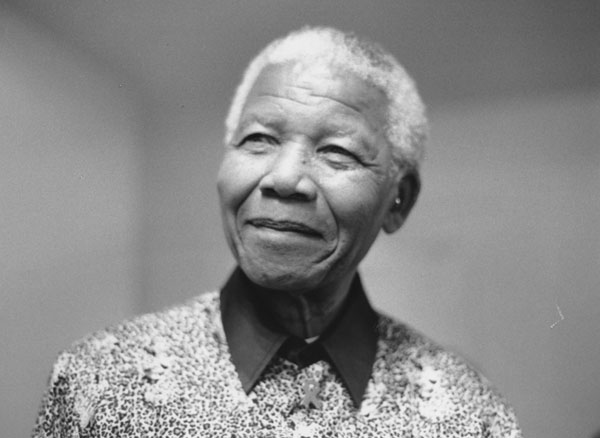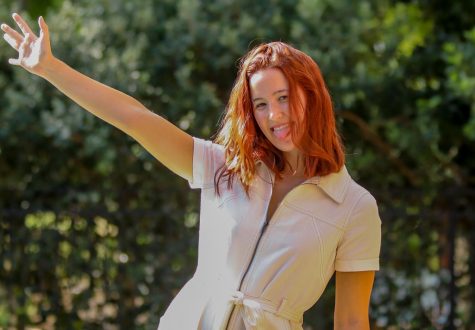Nelson Mandela, South Africa’s first President
Mandela, the man who made the ending of the Apartheid in South Africa possible

Nelson Mandela, the first President of South Africa.
February 17, 2019
South Africa was at one point segregated and divided by Apartheid. Nelson Mandela, considered as the “Father of a democratic South Africa”, and many other people fought for change. Due to his rebellious actions against the South African Government, Mandela was incarcerated and given a death sentence and sent to Robben Island Prison. He was incarcerated for 27 years. Shortly after his release, he became South Africa’s first president.
Nelson Mandela was born in Transkei, South Africa on July 18th, 1918. Despite his father, who was a local tribe leader of the Temu tribe, Mandela grew up with a full education and studied Law. Mandela joined the ANC (African National Congress) to oppose Apartheid. Mandela and other members were put on trial for treason, which concluded in the shutting down of the ANC. A couple of years after the court case that Mandela was involved in, he was yet again put on trial for treason. The case drew international interest which placed the Apartheid under the world’s eyes. He then gave a long speech declaring his commitment to democracy.
In his statement from the Dock at the opening of the defense case in the Rivonia Trial, he stated,”We believe that South Africa belongs to all the people who live in it, and not to one group, be it black or white. We did not want an interracial war, and tried to avoid it to the last minute.”
Nelson Mandela was released from prison on February 11, 1990. Four years after his release, South Africa had its first Presidential Election and Mandela became South Africa’s first President. Mandela brought in a new ‘Rainbow Nation’ He retired from his Presidency in 1999. Mandela lived to be 95 years old, passing away on December 5, 2013 due to a long illness.
After a long fight for freedom, he stated, “I learned that courage was not the absence of fear, but the triumph over it. The brave man is not he who does not feel afraid, but he who conquers that fear.”



